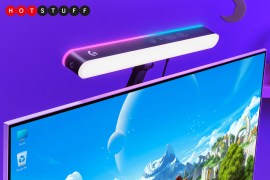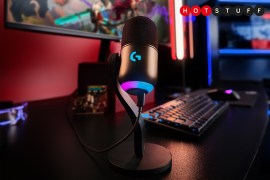Microsoft Lumia 650 review
A budget Windows phone that looks anything but cheap

Microsoft is tired of being the nerdy kid in class. It’s doing its best to jam its phones and the Xbox One together with Windows 10 to make it seem like the best toy box in town.
The Windows 10 era of phones didn’t start off too well with the Lumia 950, but the Lumia 650 is here to really open up the next-generation of Windows phones to everyone. It costs £160, right where Android phones start to get really good.
Microsoft isn’t messing around, using a metal-framed body and OLED screen that aim to make previous budget Lumias look like retro toys. However, it has traded away the decent performance of the classic budget Lumias too. It’s a luxury liner, but parts of its hull are made from cardboard.
Lumia gets serious
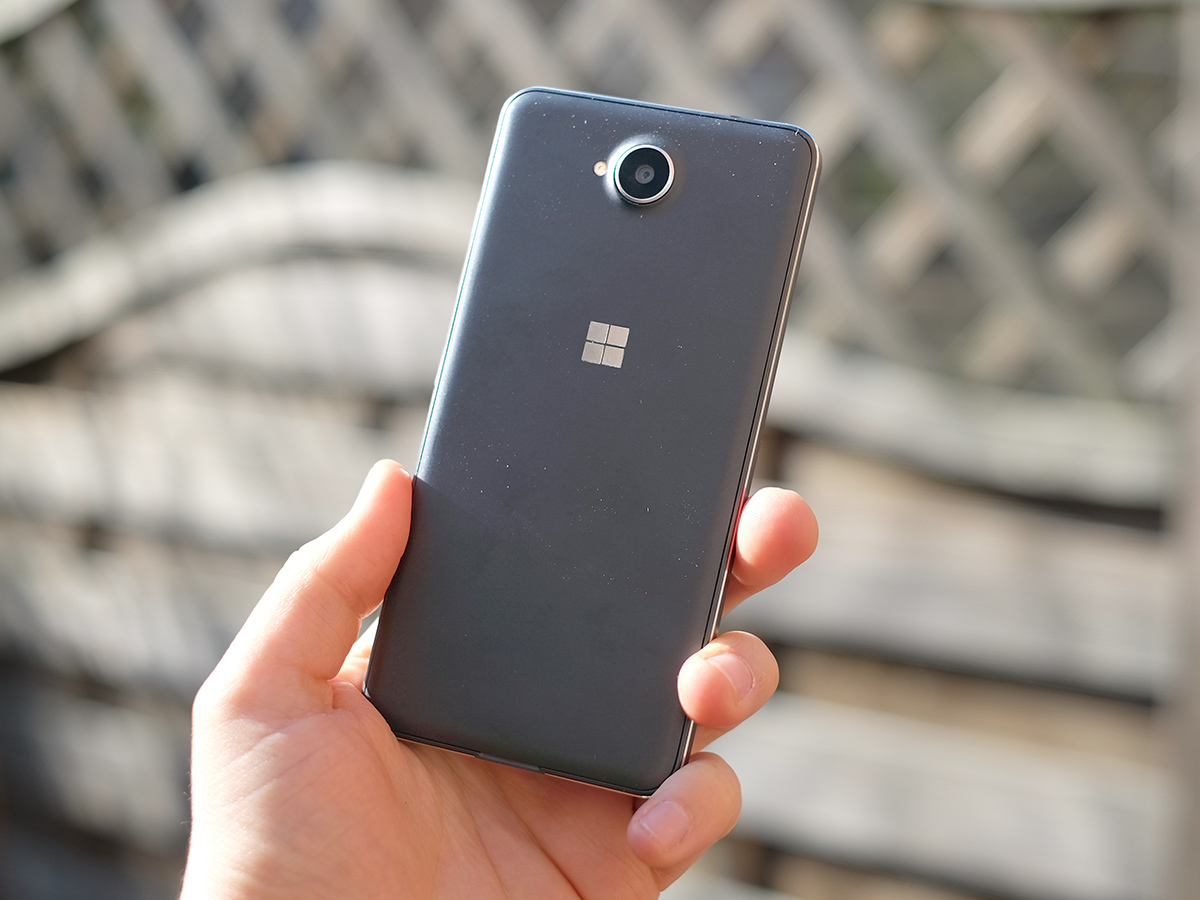
Until now cheaper Lumias offered some of the cutest, most colourful budget phones. They were round, cuddly and didn’t really aim to seem more expensive than they were.
They used to score high on the likability scale. The Lumia 650 rejects everything the Nokia-era Lumias were about. The curves and colours have been dumped like 2015 One Direction calendars.
What you get instead is a far slicker-looking, more expensive-feeling design. If I knew nothing about the Lumia 650 and someone told me it cost £250 I wouldn’t load up a sarky comment to fire back with. It’s wafer-thin at 6.9mm thick and has a band of metal running around its sides that’s reminscent of Samsung’s mid-range phones. There’s no frame flexing, and while the Lumia 650 looks plain from the back, it’s pretty smart, right?
Looking a little closer, aside from being well-made the premium look is an ultra-thin veneer. You can pull off the Lumia 650’s back cover to get access to the battery, and from here you can see the metal border is a wafer-thin coating atop a pretty ordinary plastic frame. It’s chocolate sauce on supermarket own-brand vanilla ice cream.
It doesn’t extend to the ports either: cutting them into metal apparently costs a bit. Let’s not get hung up on this, though. Oppo pulled comparable tricks with the metal-back Oppo F1 and the phone feels pretty nice. It also has a decent 16GB storage and a microSD slot.
Budget bargains › The best cheap smartphones – reviewed
OLED price crash
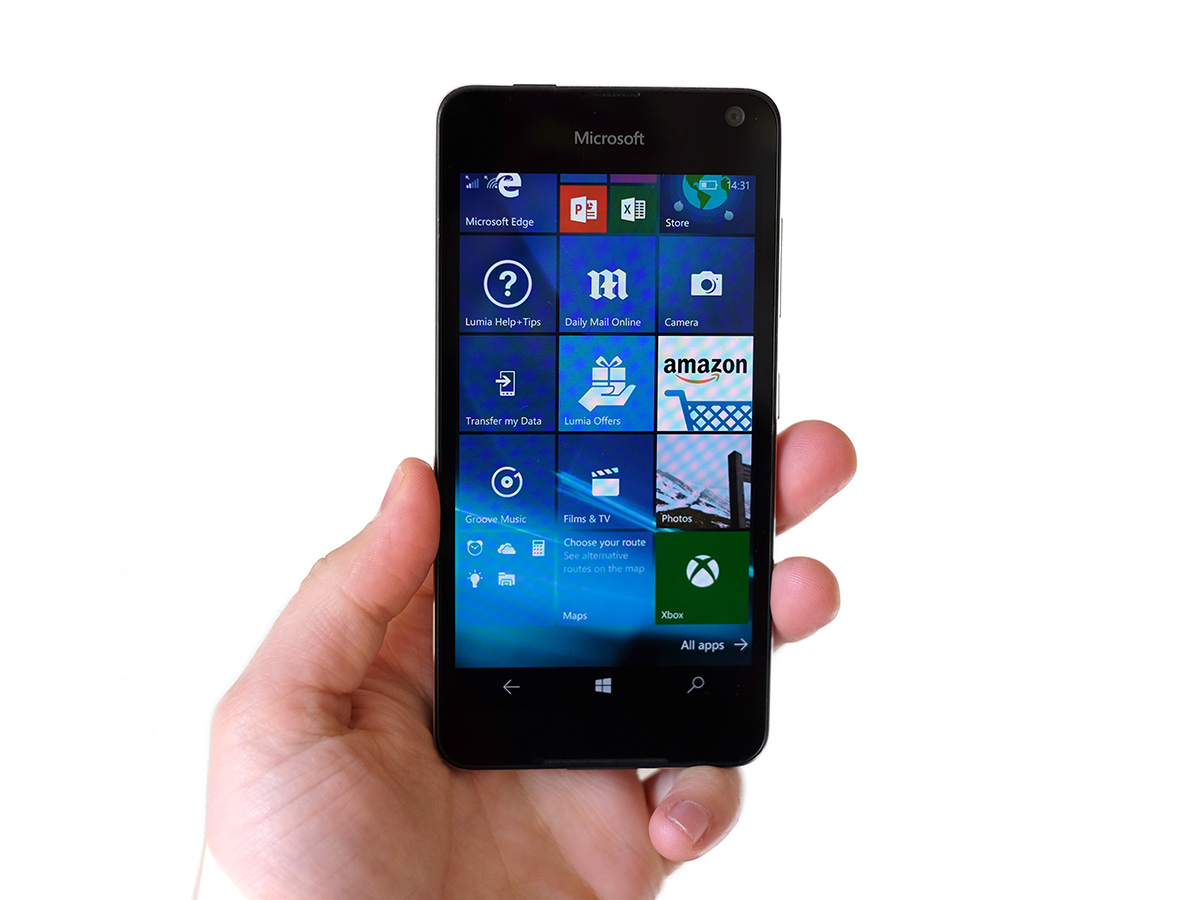
The Microsoft Lumia 650 feature that really has my eyebrow raised is its screen. At this price you see loads of 5in 720p screens, but almost no OLED ones. They’re all LCDs usually.
The difference? LCD screens use LEDs that fire across the screen to make the whole thing visible, where with OLEDs each pixel is its own light source. They’re much better at maintaining a punchy look in dark rooms and tend to have much higher colour saturation.
Less expensive OLED phones can look pretty nasty because an untamed OLED can become incredibly oversaturated. There’s not much of that effect here, though. Colours are clearly a bit more vibrant than you get in the average LCD phone at this price, but don’t look toxic.
And that OLED contrast: yum. I have an issue with OLEDs, though. Unless you have more pixels than you know what to do with, they look a bit fuzzy. The Lumia 650 has some of this ‘patterned’ fizzy effect, making it look less sharp than an IPS LCD of exactly the same specs, like a Moto G.
Out in the real world the big benefit of using an OLED screen is that it lets the Lumia 650 keep its display on all the time. You get the time and date on-screen 24/7, something more expensive Lumias have had for ages. As only a tiny bit of the screen needs to be activated, it doesn’t ruin battery life.
It’s a pretty cool feature that has had me looking at my watch a whole lot less over the past week.
Flagship Windows Phone › Microsoft Lumia 950
Eyes on the wrong balls
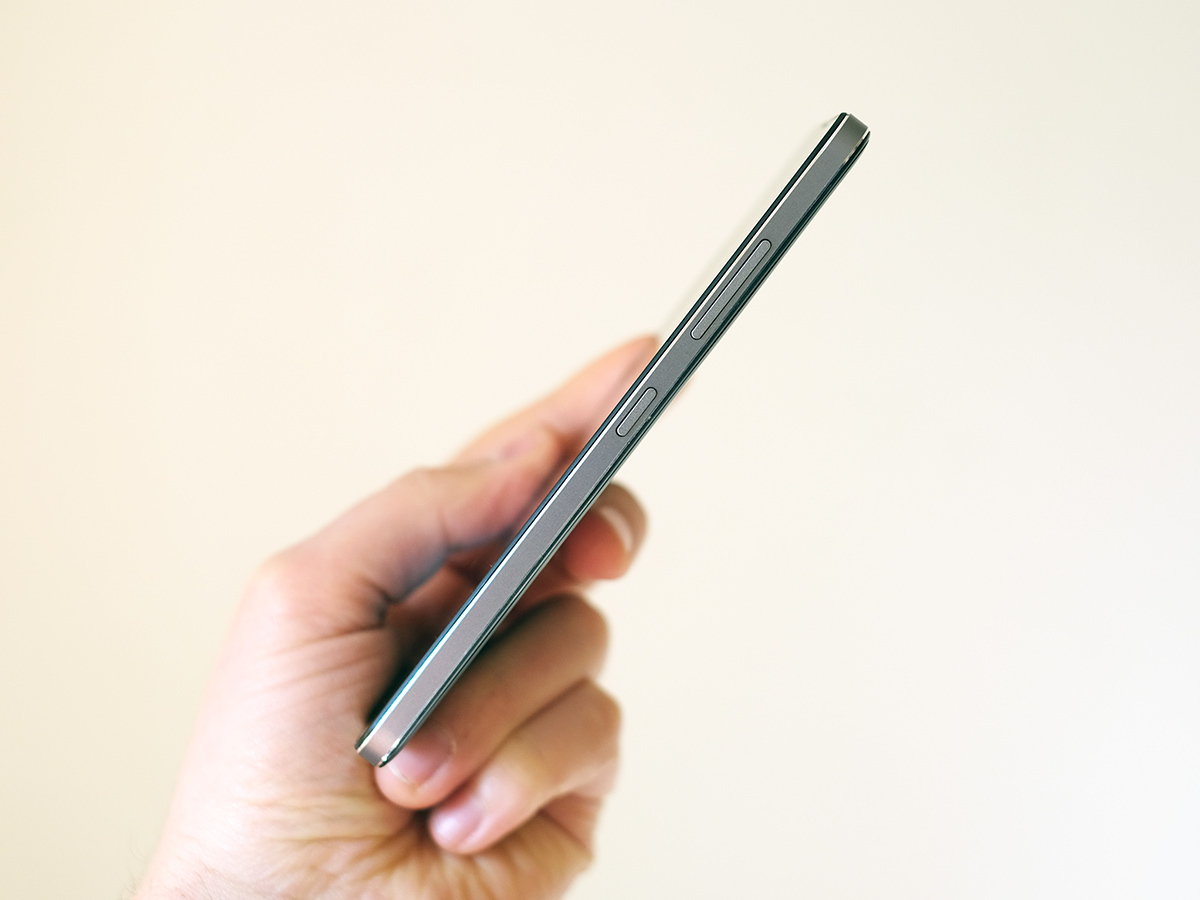
The Microsoft Lumia 650’s problem is that it has focused almost entirely on these two surface elements: the design and the screen.
The rest isn’t quite so hot. When the first wave of Windows 10 phones came out last year, I complained about how they seemed a bit off, a bit buggy. That doesn’t seem to have changed much. The keyboard still sticks around when it shouldn’t on occasion and it just doesn’t have the liveliness older versions used to have.
Maybe it’s a relative thing, that our definitions of what ‘fast’ mobile software have shifted now that Android isn’t a charmingly clunky mess but just as slick as iOS. Android Marshmallow has arguably nicked Windows’s apps menu style, using a smooth scroll of apps, but the Android one feels a lot faster and more intuitive than the menu here. And the Lumia 650 has the added issue that it uses a very low-end CPU.
It has a Snapdragon 212, a quad-core 1.3GHz Cortex-A7 CPU and an Adreno 304 GPU. This is actually pretty similar to the Snapdragon 410 that used to be splashed across so many phones, with a slightly higher clock speed main processor and a slightly slower graphics one.
It’s dated, but not as slow as some of Qualcomm’s previous 2-series chipsets, which have killed the performance of several Android devices I’ve used in the past. Here, it’s just about passable.
Apps seem to take quite a while to load compared to the similarly-priced Androids, and there is a bit of minor glitchy slow-down in the UI every now and then. I’m getting on with the Lumia 650 well enough, although it’s not a phone I’m going to miss using. The best £160 Androids feel significantly faster.
Check out my fps
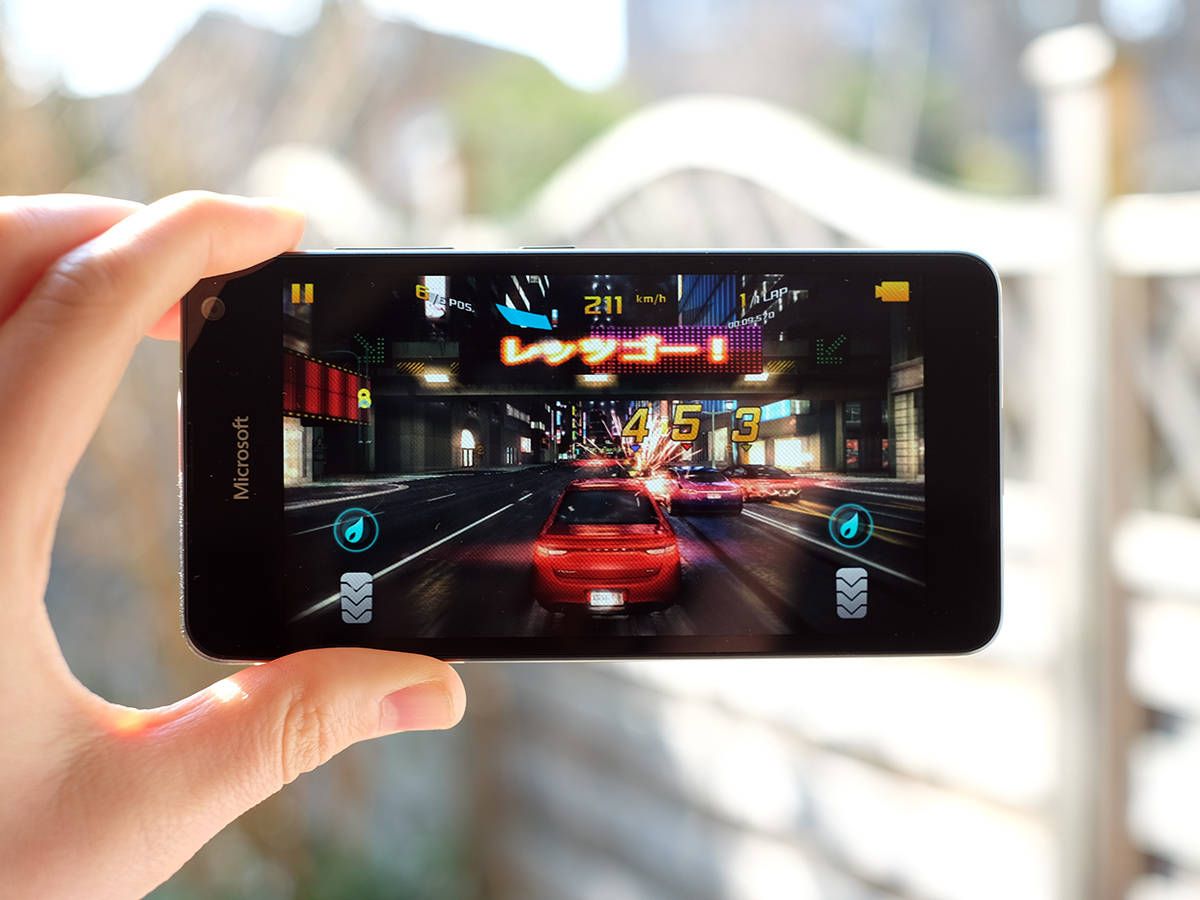
Gaming performance is pretty similar. With a real low-end graphics brain I was half-expecting a disaster, but it’s really not that bad. In Asphalt 8, one of Windows 10’s few ultra-premium (and free) 3D racers, you can tell the frame rate isn’t perfect, but it’s nowhere near as bad as the slow-down I saw recently in a real low-end Android. It doesn’t ruin the fun.
The Lumia 650 is not a phone I’d recommend to real gaming fans, though. You just don’t get the new titles available on Android and iOS. For example, recently I’ve been playing Clash Royale on Android to see what all the fuss is about. Is it available on Windows 10 for phones? Of course not. The top-level selection on the Windows Store looks sadly similar to what I saw the last time I reviewed a Windows phone, back in 2015.
And way before that, to be honest. There are lots of elements to like in Windows, but it doesn’t feel as though it has kept up with the competition quite enough.
The Lumia 650 also lacks one of the most important (if you listen to Microsoft’s spiel, anyway) bits of Windows 10 for phones. I’m talking about Continuum, the software that lets you turn your phone into a computer with the help of an accessory (that costs as much as a stick PC, but nevermind). It would almost certainly run horribly using the limited hardware here, but means the platform’s appeal is stripped back a bit.
The ultimate Windows laptop › Microsoft Surface Book
A smart camera
Like the Lumia 650’s brains, the main camera hardware specs sit a step or two below what you get in the best sub-£200 Androids. There’s an 8-megapixel camera on the back with a single-LED flash and 1/4-inch main sensor, plus a 5-megapixel camera on the front.
Its specs won’t blow you away, but the Lumia series doesn’t half have smart image processing. Try to check out an image in the gallery just after you’ve taken it and you’ll have to wait for several seconds as it does its thing.
The Lumia 650 is so keen on processing it doesn’t really make any difference whether you turn Rich Capture HDR mode on or off. Its Photoshop hat is glued on. This really helps with making your photos clear and sorting out any dynamic range issues, although it also tends to significantly over-sharpen photos, which is probably Microsoft’s attempt to bridge the gap between the 650 and its several 13-megapixel rivals.
Using the camera normally is just fine, it feels good, as all the processing happens in the background, leaving you to shoot away as normal. However, it’s a bit of a nightmare to use in social apps like Whatsapp. You have to wait for almost 20 seconds after shooting just to send your friend a picture of your fish and chips as the Lumia 650 makes up for the kinda-crappy hardware.
This isn’t the Lumia series’s finest photography hour, but among 8-megapixel cameras it is fairly decent.
The front camera benefits from the Lumia processing smarts too. It’s a star at fixing skin tones. Take a shot in fairly ropey indoors lighting and the preview image might make it look like your skin’s going to look grey. But it won’t in the end, once the Lumia digital retoucher has had its way with it, all will be well.
Selfies are probably a cut above at this sort of price. But for the rear camera I’d still rather use a Moto G 3rd gen. It just takes better photos, even after the processing has tarted the Lumia 650’s shots up. It can’t shoot Full HD video either, just 720p 30 frames per second. That’s it.
Two-faced battery
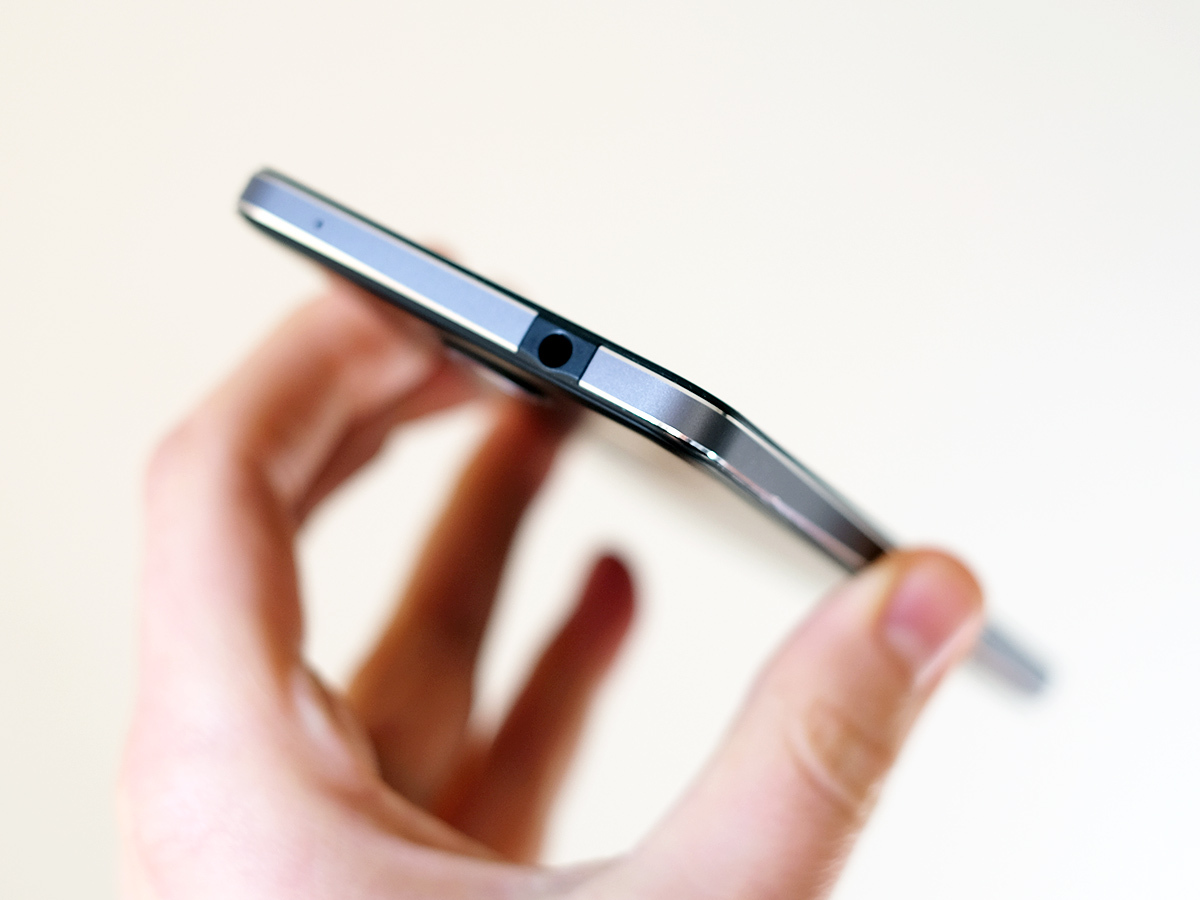
The Nokia Lumia 650 doesn’t offer great battery life either. Its highlights really are the screen and design. Prise the back off and you’ll find the removable 2000mAh battery. That’s almost 500mAh less than the latest Moto G.
I’ve found it usually needs a recharge before bed time, lasting significantly less than the best 5in 720p of the last 12 months. Play a 720p video on loop and it’ll last almost dead on 10 hours, though, which is actually better than a lot of Android alternatives.
What’s going on? It seems Windows 10 is good at paring-back processes for low-demand tasks like video. But when you make it start juggling different things, and using mobile data, the battery here only gets you baseline stamina.
Finally, there’s the Lumia 650 speaker. It’s cleverly squeezed into the bottom of the phone’s front, the sound slipping out of a little slit.
It’s smart positioning and the sound quality is passable, but the top volume isn’t going to blow you away. There’s just not really enough there to listen to tunes in the shower or a podcast while the kettle’s boiling.
Microsoft Lumia 650 Verdict
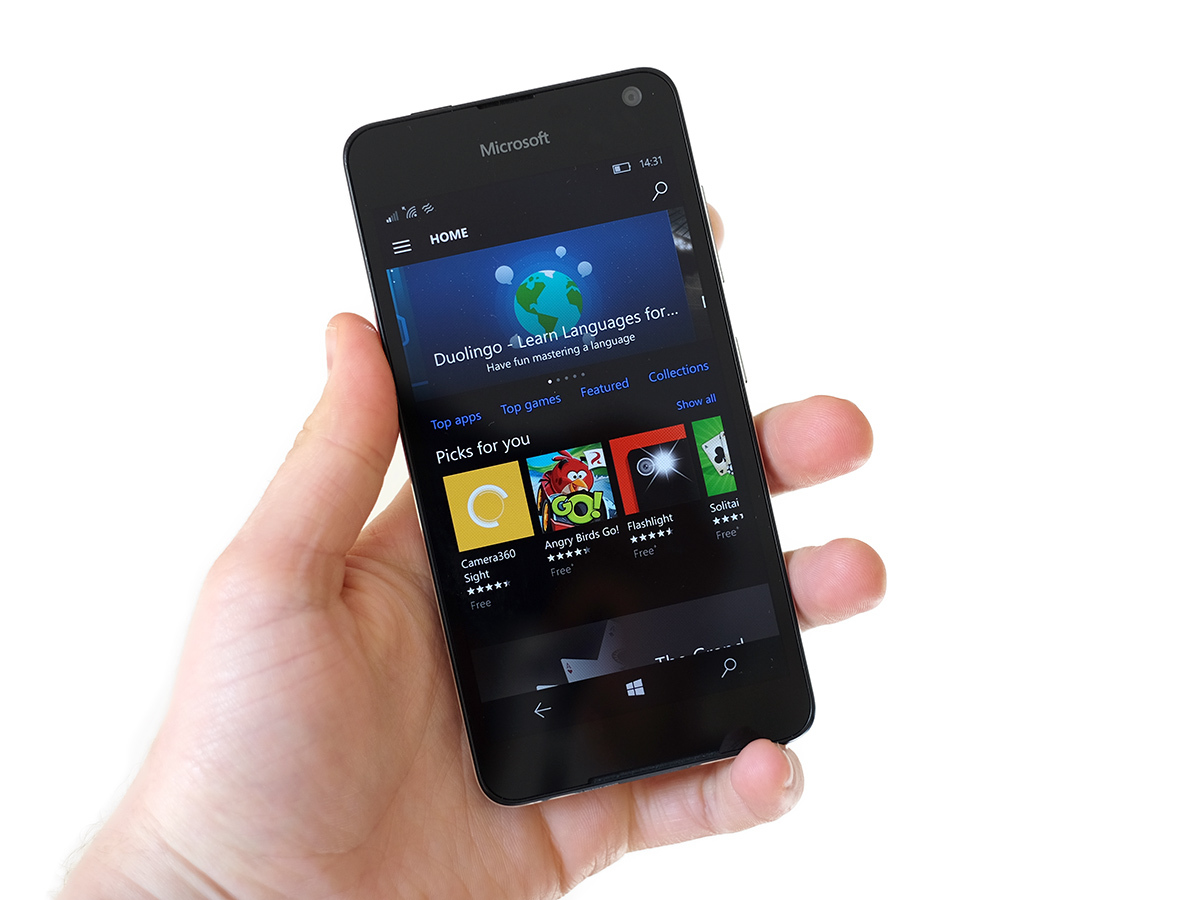
It’s all-change for Microsoft’s budget phones. Cheap Lumias of a few years ago used to do their best to guarantee a certain level of performance. It made phones like the old Lumia 620, things you couldn’t help but love.
In some ways Microsoft has its upped standards, but only at a surface level. The screen and metal-rimmed design make a great first impression, but the slow performance and water-treading hardware in other areas make it seem less of a smart buy than several Androids around the same price.
Best of the best › The top 10 smartphones
Tech specs
| Screen | 5in 720p OLED |
| Software | Windows 10 |
| CPU | Quad-core Snapdragon 212 1.3GHz |
| RAM | 1GB |
| Storage | 16GB |
| Camera | 8MP f/2.2 with flash rear, 5MP front |
Stuff Says…
Ultra-poppy screen and fancy build bits make a good first impression, but it doesn’t feel fast enough.
Good Stuff
Fancy metal rims
Super-high contrast OLED screen
Clever camera processing
Decent selfies
Bad Stuff
Slow camera processing
Feels slow in use
Not great general-use stamina

